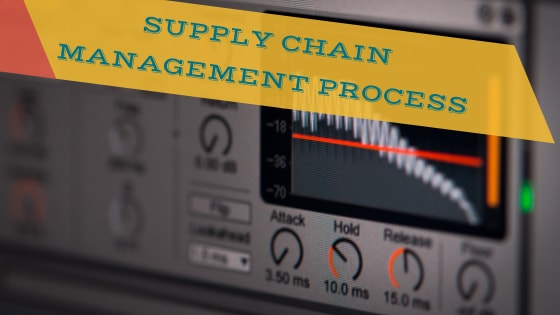Ways In Which ERP Eases The Process Of Supply Chain Management
-
August 9, 2019
- Posted by: Admin
- Category: supply chain management erp
No Comments

- August 9, 2019
- Posted by: Admin
- Category: supply chain management erp

In an exceptionally competitive business condition, the present day organizations require a dependable and effective strategy for putting away, handling and getting an insight into the information. This is exactly where an ERP solution demonstrates to be particularly helpful. An ERP arrangement works via flawlessly incorporating each aspect of your everyday activities into a solitary extensive data centre, in this way making crucial information open to every individual inside your business.
Irrespective of whatever industry you might be in, your supply chain management revolves around suppliers, manufacturers, retailers, customers, distributors, etc. To put it simply, managing your supply chain will mostly include proper planning, control, monitoring and execution of the supply chain activities. The end goal is to satisfy the demands of the customers in the most strategic and practical manner. A supply management ERP software will not just add value to the process of the supply chain as a whole but it will also provide an opportunity to coordinate with the information, financial and material flow as well. To help you gain a better understanding, the different ways in which a supply management ERP software eases the process of supply chain management are:
- INTEGRATION:
The process of supply chain management requires a strategic approach and a methodology that work together in a coherent manner. With the help of a good supply chain management system, it is possible to integrate all processes into one system. This allows optimisation of all the processes and the way in which the information gets shared at all levels. One of the most important features of ERP software is a shared database that helps in catering to different functions and different departments, all at the same time. The simple meaning of this point is that your HR department is going to use the ERP software as much as your accounting department.
- BETTER REPORTING:
With the help of a supply chain ERP software, it is possible to collect and combine the complete database so as to ensure accuracy while accessing the data for all the employees. This also helps your staff to not maintain their own spreadsheets and databases and rely on just one report. To make it more clear, the sales team can automatically look through a financial system without any possible manual input. With that the order management division to have an efficient time in processing orders which will finally lead to a better transaction done by the finance department.
- SUPPLY CHAIN MANAGEMENT PLANNING:
A supply chain management ERP will be beneficial for the planning process of the supply chain as well. To put this simply, the process of choosing the right marketing channels, promotion channels, the management and regulations of the stock, the quantity of the stock and the inventory management done to ensure the production of goods is handled very well with inventory management software. More so, a good supply chain planning is required to make sure that the production process meets the consumer demands in the right manner and an ERP solution makes that possible.
- ENHANCED DATA MANAGEMENT:
An ERP solution ought to be a characteristic augmentation to your current business procedures. Basically, it should give a far reaching executives framework that completely coordinates and deals with everyday activities and data streams in one available framework. It is often observed that a typical explanation behind why various organizations neglect to extend and develop is because of that they’re not able to satisfy the developing client needs. This happens because of the absence of appropriate data, which again defers the production network capacities. The job of supply chain management ERP is to keep every single vital piece of data progressively available while guaranteeing total perceivability. A decent ERP solution will effectively offer better data management.
Making an investment to get a good supply chain ERP software is going to make performance evaluation much better and easier for the vendors. The software allows the supply chain in a way that it measures the qualitative and quantitative factors while facilitating the needs of partners, suppliers, vendors, distributors and retailers in the supply chain.


